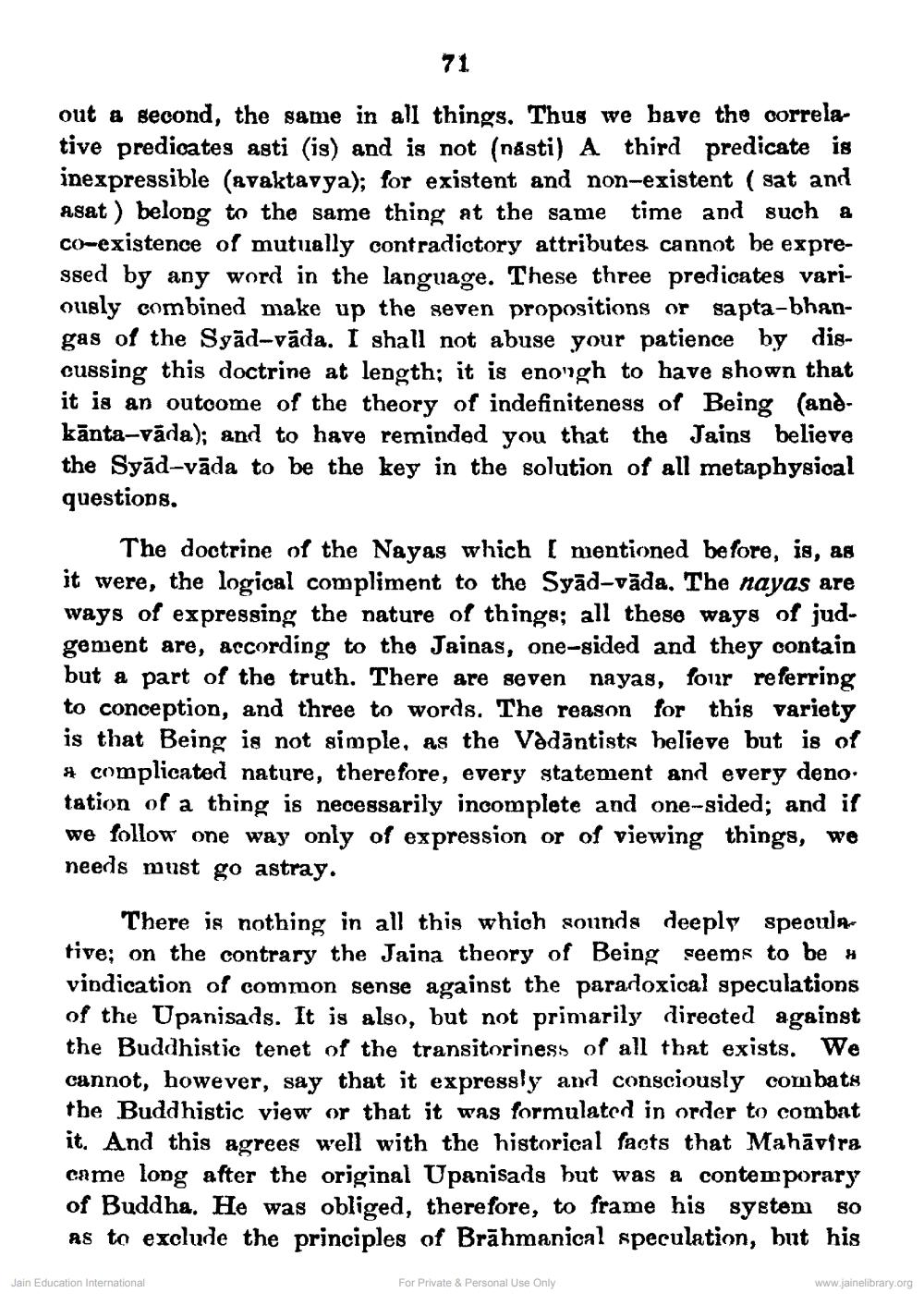________________
out a second, the same in all things. Thus we have the correlative predicates asti (is) and is not (nasti) A third predicate is inexpressible (Avaktavga); for existent and non-existent ( sat and Asat) belong to the same thing at the same time and such a co-existence of mutually contradictory attributes cannot be expressed by any word in the language. These three predicates variously combined make up the seven propositions or sapta-bhangas of the Syād-vāda. I shall not abuse your patience by discussing this doctrine at length; it is eno'rgh to have shown that it is an outcome of the theory of indefiniteness of Being (andkānta-vāda); and to have reminded you that the Jains believe the Syād-vāda to be the key in the solution of all metaphysical questions.
The doctrine of the Nayas which I mentioned before, is, as it were, the logical compliment to the Syād-vāda. The nayas are ways of expressing the nature of things; all these ways of judgement are, according to the Jainas, one-sided and they contain but a part of the truth. There are seven nayas, four referring to conception, and three to words. The reason for this variety is that Being is not simple, as the Vedāntists helieve but is of
complicated nature, therefore, every statement and every deno. tation of a thing is necessarily incomplete and one-sided; and if we follow one way only of expression or of viewing things, we needs must go astray.
There is nothing in all this which sounds deeply specular tive; on the contrary the Jaina theory of Being seems to be vindication of common sense against the paradoxical speculations of the Upanisads. It is also, but not primarily directed against the Buddhistic tenet of the transitoriness of all that exists. We cannot, however, say that it expressly and consciously combats the Buddhistic view or that it was formulated in order to combat it. And this agrees well with the historical facts that Mahāvira came long after the original Upanisads hut was a contemporary of Buddha. He was obliged, therefore, to frame his system 80 as to exclude the principles of Brāhmanical speculation, but his
Jain Education International
For Private & Personal Use Only
www.jainelibrary.org




